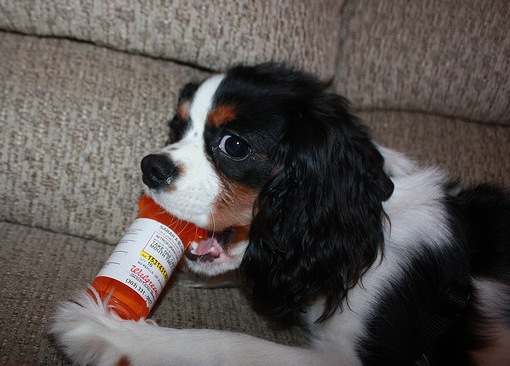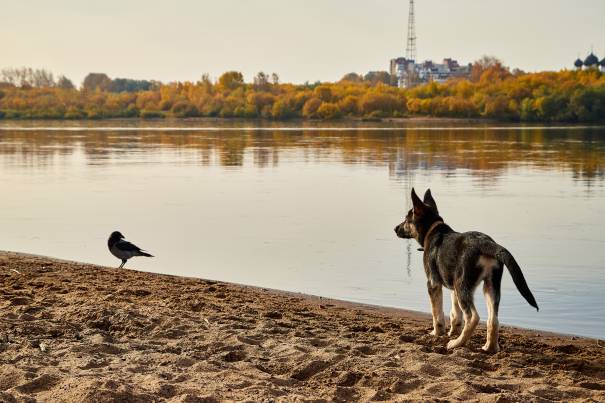Has your dog eaten some lungwort? Are you worried lungwort will make him sick? If so, then you’ve come to the right place. We know it can be scary when your dog eats something that may not be good for him.
Connect with a verified veterinarian in minutes. Licensed vets are available 24/7 to answer your questions. No need to worry about your furry family member.
In this article, we’ve put together some information on lungwort and whether or not it can make your dog sick. Let’s get started!

What is Lungwort?
Lungwort, also called pulmonaria, is a pretty perennial plant that grows in the garden. It’s a bushy plant that blooms about twice a year. This plant may also go by the following names:
- Coucou bleu
- Dage of Jerusalem
- Grande Pulmonaire
- Herbe Cardiaque
- Herbe au Lait de Notre-Dame
- Herbe aux Poumons
- Lungenkraut
- Pulmonaire
- Pulmonaire Officinale
- Pulmonaria Officinalis
- Pulmonariae Herba
- Sauge de Bethlehem
- Sauge de Jerusalem
This plant is pretty in the garden but has also been used to treat breathing conditions, stomach, and intestinal problems, as well as kidney and urinary tract problems. Lungwort is also sometimes used in cough medicines to relieve fluid retention and to treat lung issues like tuberculosis.
Can lungwort make your dog sick?
Lungwort & Dogs
According to the USDA, lungwort can have some toxic properties. These are caused by chemicals in the plant known ase saponins and pyrrolizidine alkaloids.
If your dog eats a lot of lungwort, he could become poisoned. However, we couldn’t find any definitive information on how much of the plant is toxic for dogs.

Review symptoms, medications & behavior to keep your pets healthy with a Vet Online in just minutes.
Ask a Vet Live NowSymptoms of Lungwort Ingestion in Dogs
You may notice these symptoms if your dog eats lungwort:
- Nausea
- Vomiting
- Diarrhea
- Neurological problems
If your dog has eaten only a small amount of lungwort, he will probably be OK. However, he may experience some digestive issues. If the vomiting and diarrhea last longer than 24 hours, then it’s best to call the vet. You want to avoid your dog becoming dehydrated. Also, call the vet if your dog develops any other symptoms that are concerning.
If your dog has eaten large amounts of lungwort, you should call the vet straight away. They will have better knowledge of how this plant could affect your dog. Be sure to follow your vet’s advice closely.
IFf you’re worried or concerned about your dog eating lungwort, then go ahead and call the vet. It’s always better to err on the side of caution. Your vet will have the best advice on what to do next if your dog needs any type of treatment.
Connect with a verified veterinarian in minutes. Licensed vets are available 24/7 to answer your questions. No need to worry about your furry family member.

Gemma Cliffin BSC BVSC MRCVS
This article has been reviewed and approved by an independent Veterinarian: Dr Gemma Cliffin MRCVS is an experienced small animal vet who combines her love of writing alongside working in practice. Since her graduation from the University of Liverpool in 2014 she has worked in a wide variety of roles including first opinion practice, as a night vet and as a locum vet. She has also spent time working at a charity clinic in the Cook Islands which was a challenge but also immensely rewarding. She loves all aspects of veterinary work, but she especially enjoys medicine cases and diagnostic imaging. She is passionate about pain-management, particularly in her more senior patients. She currently works in a first opinion small animal practice in North Yorkshire where she deals with both routine and emergency cases.
Review symptoms, medications & behavior to keep your pets healthy with a Vet Online in just minutes.
Ask a Vet Live Now





